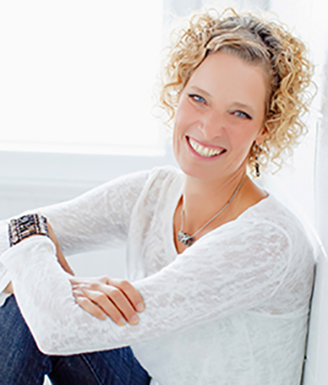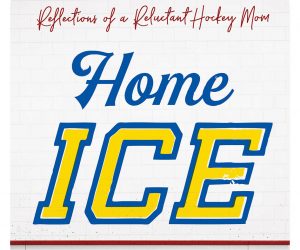
 Dr. Angie Abdou is an assistant professor in the English department, specializing in creative writing. Her creative writing has won various awards and media recognition.
Dr. Angie Abdou is an assistant professor in the English department, specializing in creative writing. Her creative writing has won various awards and media recognition.
What pedagogical standpoint is most reflective of your way of teaching?
Dr. Abdou: Again, that comes back to the pedagogy of me seeing myself as a mentor and a partner. I often talk about a student manuscript as if we are working on it together (and I do think of it as a partnership). Students come to me with a body of work. They want to know how to take it to the next level. We are working on that project together.
So, I don’t stand up and lecture, saying, I have this knowledge and now I will tell it to you and you write it down and you memorize it and repeat it on a test?that doesn’t work in creative writing. Instead, I say: You show me what you have, and I’m going to help you. We are going to work together to get it to the next stage.
What is your view on social media in the online learning environment?
Dr. Abdou: I’m very active on social media because in my role as a writer, I try to be a public figure, to be out there and easily found. I know that some of my students follow me on twitter or on Facebook. I follow them back. It’s another nice way to connect in the online environments?equivalent to running into them in the hallways or at a local coffee shop.
Do you use the Landing in your teaching practices?
Dr. Abdou: I have in some courses.
Did you like it?
Dr. Abdou: I did. I taught a graduate course on academic writing. We used the Landing. The students all did blogs: four or five blogs in the course of the semester, and they could make a blog open or not, whatever they wanted. It was a productive way for them to work through some thoughts in a less formal manner than an essay. Also, the students made those thoughts public and available to other students to engage with. That created a sense of community and engagement. I liked it.
If you had one piece of advice for online learners, what would it be?
Dr. Abdou: Online learners need to be self-motivated. Students have to come to an online course ready to work and ready to be disciplined. It’s very easy to not be. Those are the main skills required: self-discipline and work ethic.
If you could wave a magic wand and improve one thing about online education, what would it be?
Dr. Abdou: The thing that I would improve?the thing that I miss in the face-to-face environment?is that energy that is created when everybody is in one room and working through the same ideas. I think that’s already improving in online education, whether it’s the Landing or online discussions groups or Skype meetings. There are so many different ways to connect with people online, and it’s getting much easier and better, so that that part is improving, naturally.
What is your view on interdisciplinary studies?
Creative writing is inherently interdisciplinary, right? Students can bring whatever they know to creative writing. The more they know about anything, the creative writing is going to get better. I’m very excited also to be teaching in the MAIS program: the Master of Arts in Integrated Studies. Right now, I’m teaching MAIS 617, a Creative Nonfiction course.
The different backgrounds that students bring to that course is fascinating. In my other positions at other universities, I worked primarily with English majors, so here we have a really strong mix of social scientists, scientists, arts people, humanities people, and the variety makes the discussions livelier and more informed. We can rely on different students to bring different expertise to the conversation.
How do you keep abreast of best teaching practices?
Dr. Abdou: Conferences. I go regularly to conferences. I connect with colleagues around the country, and we’re always sharing ideas. I’m also on several Facebook pages, ones for teaching creative nonfiction or teaching fiction. Those are always stimulating. This country is so filled with wonderful writers who also teach that it’s not hard to find those conversations and learn from them.
What are some of the challenges and highlights to publishing academic literature?
Dr. Abdou: Because I’m a creative writing instructor, I publish creative work more than I do academic work. However, I have a few academic projects on the go. Right now, for example, I’m working on an anthology of academic essays about sports literature. Sports literature is one of my main areas of interest. It is being taught more often in universities. But, there aren’t a lot of resources: people can’t find articles on these books. So, I’m doing a collection with academic articles on the main sports literature texts. I find that rewarding because I engage in the material in a different way than I do with creative writing. Academic writing exercises a different part of the brain than creative writing does. I like that variety.
Is the sports writing nonfiction?
Dr. Abdou: Both nonfiction and fiction. I’m more interested in fiction about sport.
What was your favourite course to teach? Why this particular course?
Dr. Abdou: I really like teaching my creative nonfiction course because students share their own stories. That’s always interesting. Sharing stories is one way to connect with students even though we’re working at a distance. I enjoy that. I like the advanced fiction courses a lot as well because students who make it that far are very serious about their novels. There is the likelihood of those manuscripts one day making it into print, and that’s a dream come true for those students, so I like to help them along the way to that dream.
If you could confer one piece of wisdom on an upcoming student in your discipline, what would it be?
Dr. Abdou: My advice is to write only because you love to write. Don’t write with some idea that there is going to be a pot of gold at the end. Write what you need to write, what you want to write, what you love to write.
What does it take to become a publishable writer?
Dr. Abdou: Patience and perseverance. Time. I have students I work with who are publishing books on which I worked with them seven years ago. Two students this year got publishing contracts for books they’ve been working on for at least seven years. Aspiring writers need a lot of stick-to-it-iveness.
What kind of writing skills do you need?
Dr. Abdou: Perfect ones. The publishing industry is very competitive.
What are perfect writing skills?
Dr. Abdou: Clarity and precision. I like Orwell’s comment that you can’t express yourself clearly unless you have clarity of thought. Often ideas themselves are kind of muddy or kind of vague, which makes it impossible to get clarity on the page.

